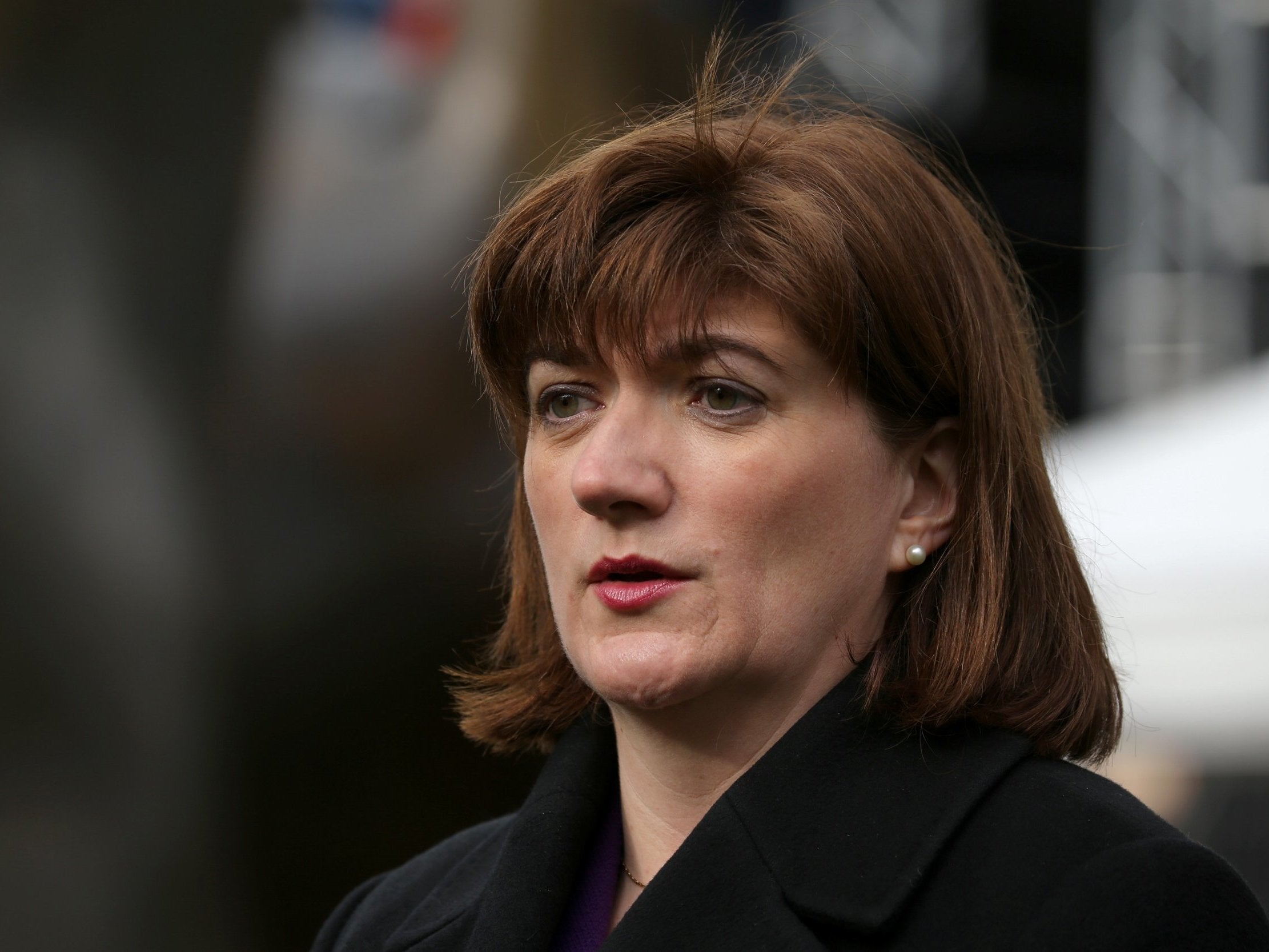High-tech systems will not stop hard Irish border after Brexit, warns former shadow secretary Owen Smith
A Commission chaired by two Conservative MPs has set out "alternative arrangements" to avoid a backstop
Your support helps us to tell the story
From reproductive rights to climate change to Big Tech, The Independent is on the ground when the story is developing. Whether it's investigating the financials of Elon Musk's pro-Trump PAC or producing our latest documentary, 'The A Word', which shines a light on the American women fighting for reproductive rights, we know how important it is to parse out the facts from the messaging.
At such a critical moment in US history, we need reporters on the ground. Your donation allows us to keep sending journalists to speak to both sides of the story.
The Independent is trusted by Americans across the entire political spectrum. And unlike many other quality news outlets, we choose not to lock Americans out of our reporting and analysis with paywalls. We believe quality journalism should be available to everyone, paid for by those who can afford it.
Your support makes all the difference.Proposed technological solutions to avoid a hard Irish border after Brexit will not succeed in the absence of consent from populations in both the Republic and the North, a former shadow Northern Ireland secretary has warned.
A new independent report claims that “alternative arrangements” based on existing technologies could be in place within three years to keep the border open and do away with the need for the controversial backstop.
The interim report, co-chaired by Conservative MPs Nicky Morgan and Greg Hands, says that there is no need for the kind of futuristic high-tech systems branded “unicorns” by critics.
But former shadow Northern Ireland secretary Owen Smith said the “vague” proposals amounted to no more than “a desperate attempt to make a square peg fit into a round hole in order to try and hold the warring factions of the Conservative Party together”.
He said it was clear that the solutions put forward by the Prosperity UK Alternative Arrangements Commission do not have consent from either side of the border.
The backstop included in the withdrawal agreement reached last November between prime minister Theresa May and the EU is designed as an insurance policy to keep free movement across the border until a long-term solution is in place. It is opposed by hardline Brexiteers because it would require the UK to remain in a customs union with the EU, with no fixed time limit, preventing the negotiation of new trade deals elsewhere in the world.

The new report, drawn up by a team of technical experts, recommends the use of a “trusted trader” programme for large and medium-sized companies, with exemptions for the smallest firms, as well as the creation of mobile units to conduct sanitary and phytosanitary checks away from the border.
It proposes investigating the option of Special Economic Zones to deal with the realities of border and cross-border communities.
A draft Alternative Arrangements Protocol could be inserted in the existing withdrawal agreement – or any new Brexit deal – to provide a route-map to an end-state which does not require a backstop, the report states.
Ms Morgan said: “The Commission was set up to break the Brexit deadlock and it has done a great, detailed job and I would like to thank the team of technical experts.
“The Commission has met its three conditions: to uphold the vital Belfast-Good Friday Agreement, to harness existing technologies and Customs best practice, not any futuristic ‘hi-tech unicorns’, and to be compatible with any of the possible Brexit outcomes, including the existing withdrawal agreement.
“A successful agreement and rollout of alternative arrangements would supersede the need for the backstop.”

But Mr Smith, a supporter of the People’s Vote campaign for a second referendum, said: "The idea of trying to replace the Northern Ireland backstop with so-called 'alternative arrangements' has already been tested to destruction - there is no political will to do so from either Ireland, the rest of the EU or most importantly the people of Northern Ireland, particularly those living on or near the border. This new report does nothing to address that crucial underlying point.
"Talk of vague 'technological solutions', special economic zones or checks away from the border still fail to meet the basic test for a durable solution to this intractable problem - it needs to have the consent of both the people of Northern Ireland and of the Republic of Ireland: those who it will affect the most. And it's clear it doesn't have that consent on either side of the border.
"The Alternative Arrangements Commission is nothing more or less than a desperate attempt to make a square peg fit into a round hole in order to try and hold the warring factions of the Conservative Party together. The future of Northern Ireland is too important to be treated like this. The only way to a deliver a lasting and stable solution to this problem is to give the public the final say."
And the head of the Best for Britain campaign, Naomi Smith, said: "There are two big problems with this report. For starters, a solution years down the line won't cut it: we have a deadline of 31 October this year.
"Secondly, to satisfy the ideological wet dream of a few Brexiters, we're going to wrap the island of Ireland in red tape and bureaucracy - at a hefty cost to the British taxpayer.
"A quicker, cheaper and more efficient option would be to stop Brexit. That's why we must give the people the final say, with the option to stay in Europe."
Brexit Secretary Stephen Barclay was discussing the report at a conference in London on Monday.
And its authors plan to take it on a roadshow tour to Berlin, The Hague, Belfast, Dublin and Brussels in the next few weeks, before publishing a final in the second half of July.

Join our commenting forum
Join thought-provoking conversations, follow other Independent readers and see their replies
Comments